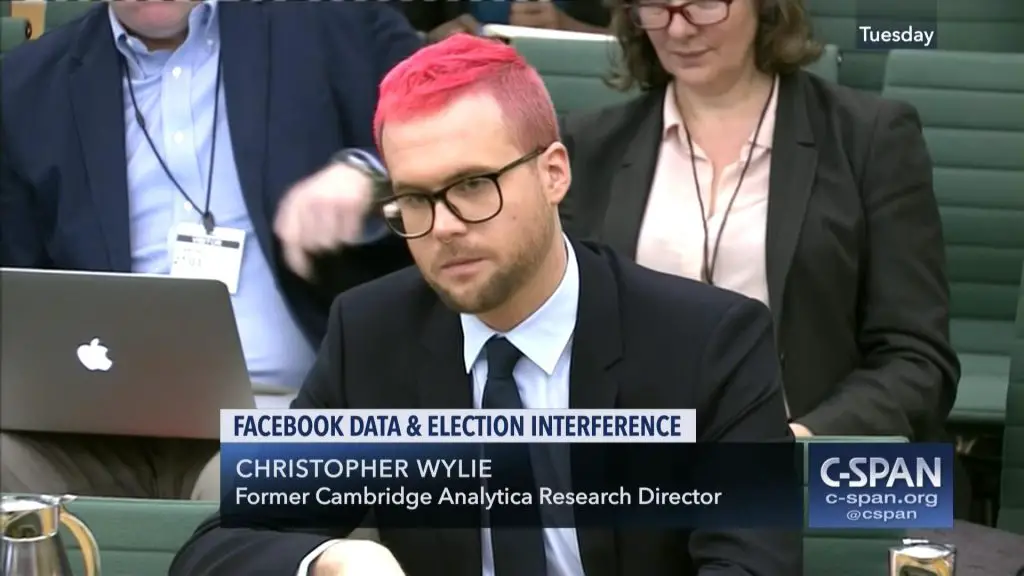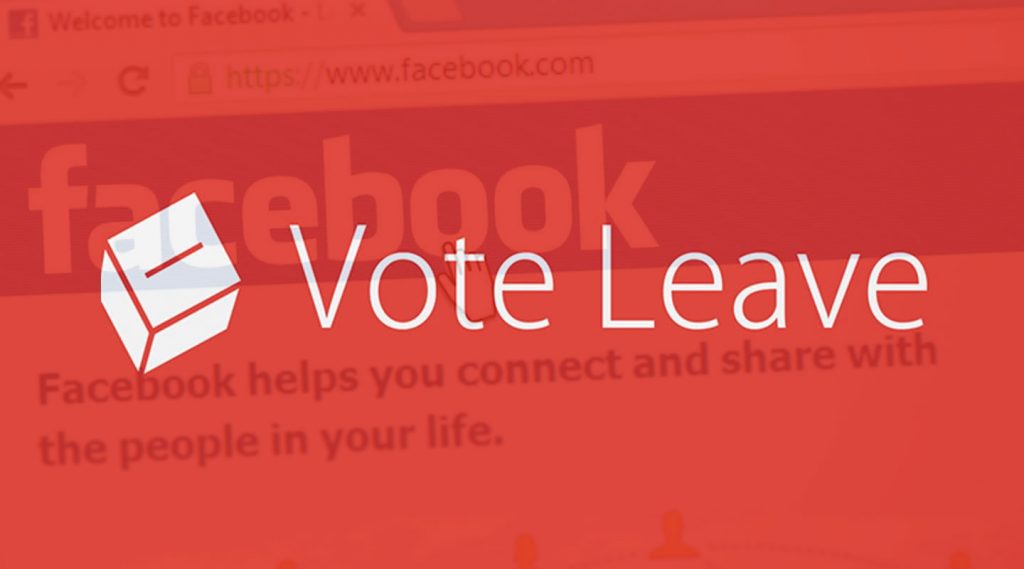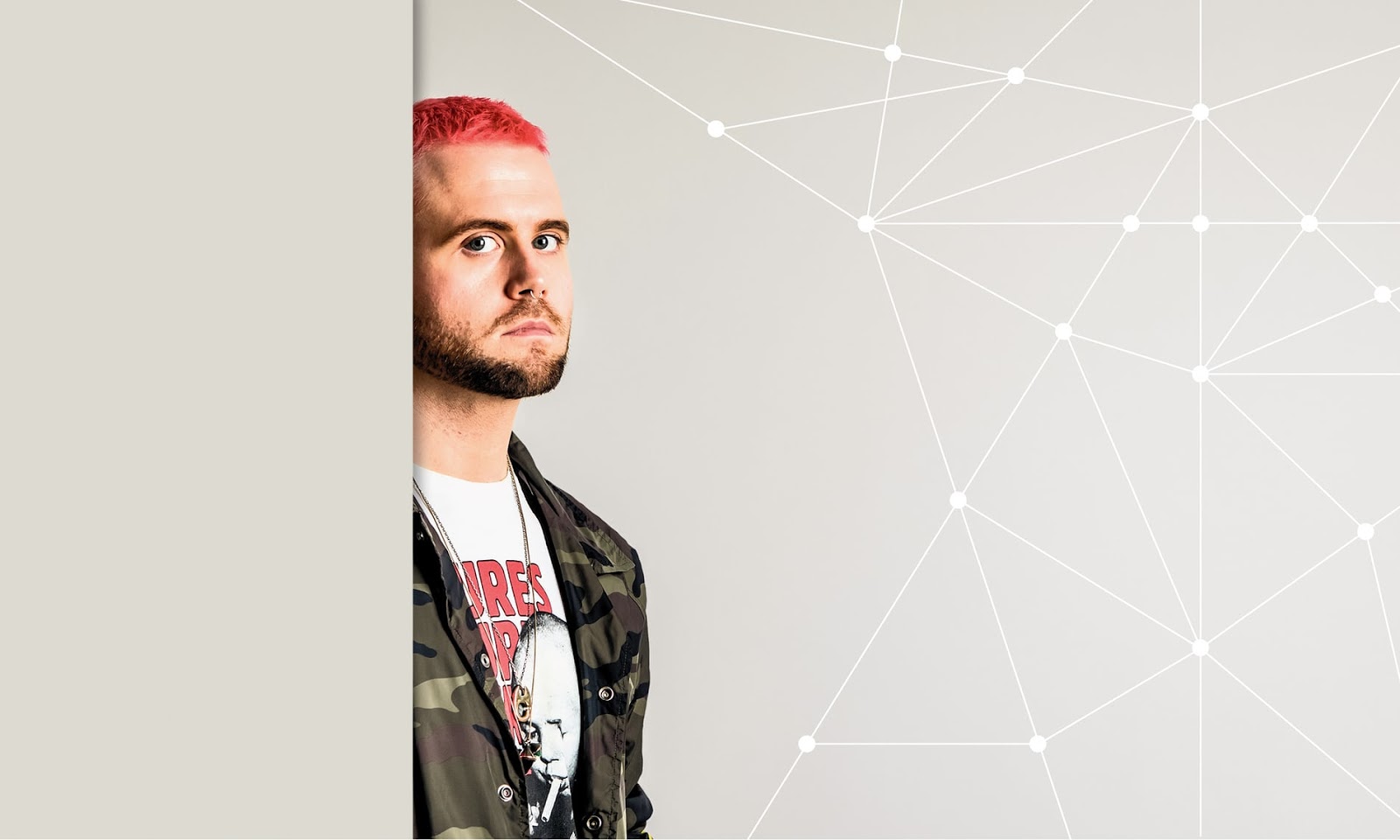In April, Facebook founder Mark Zuckerberg testified on Capitol Hill in a highly publicized and much-anticipated duo of marathon hearings. Attended in large numbers by members of the House and Senate, the hearings also received tons of press coverage and became trending topics on social media. Many social media users commented that Facebook’s supposed privacy invasions aren’t a big deal to them.
Depending on who you asked, Zuckerberg was either brilliant, awkward or unprepared. From the perspective of this interested viewer, however, he dodged most questions of any real substance while responding primarily to softballs lobbed at him from less informed members of the House and Senate.
Zuckerberg’s standard response to most serious questions took varying forms of “I’ll have to check with my people and get back to you.” He even vocally responded this way to numerous questions he had received weeks prior to the hearing in a letter from Senator Ron Wyden (D-Oregon).
As a regular C-SPAN viewer who has watched more congressional hearings than most people I know, that response has a deeper meaning to me. When I hear a witness respond in that way, especially with the frequency Zuckerberg did, it means something more along the lines of “I’ll slip that answer to you at a later date, when I’m not under the scrutiny of America’s watchful eyes via C-SPAN coverage.”
By contrast, the testimony of Cambridge Analytica whistleblower Christopher Wylie on May 16 didn’t command the attendance of the entire Senate Judiciary Committee, let alone the press coverage or social media trends Zuckerberg’s testimony had.

And yet, Wylie was far more forthcoming in just under three hours than Zuckerberg over the course of about nine hours. Perhaps this is because Wylie didn’t need to defend his own actions or the practices of his company.
Two co-witnesses joined Wylie in appearing before the Senate Judiciary Committee: Dr. Mark Jamison, a telecommunications professor with the University of Florida, and Dr. Eitan Hersh, a political science professor at Tufts University.
Make no mistake though, the Senate’s primary interest resided in what Wylie had to say about Cambridge Analytica. Hersh and Jamison received the occasional question or opportunity to speak on matters pertaining to their areas of expertise, but Wylie was clearly the star of this show.
The Russian Connection
Wylie echoed known facts that when Aleksandr Kogan provided data to Cambridge Analytica he also held a contract and professorship with the University of St. Petersburg in Russia. But he also established for the committee that Cambridge Analytica was, at its core, a front for Strategic Communication Laboratories (SCL Group), a British military contractor specializing in information operations.
Cambridge Analytica existed for the sole purpose of enabling SCL Group to consult on American elections, allowing them to skirt federal regulations prohibiting foreign involvement in the U.S. electoral process.
Regarding the possibility of overlap between consumers targeted by the Internet Research Agency — a Russian troll farm and information operations company — Wylie stated that it was possible that Kogan’s data could have been either intentionally shared with them, or misappropriated through keyloggers.
Wylie further contended that the issue is bigger than whether the 87 million original records were targeted with adds by the IRA. He explained that these records could have contributed to the creation of an algorithm by Cambridge Analytica or another entity, which would have allowed targeting of other users who had not had their information harvested by Kogan. So, even if the original records were not targeted, the algorithm created with their data could have targeted users based on their similarity to Kogan’s data set.
Cambridge Analytica’s Federal Election Commission Violations
U.S. federal regulations prohibit foreign persons or entities from engaging in the U.S. electoral process. However, Wylie alleges that Cambridge Analytica’s leadership, and CEO Alexander Nix, in particular, ignored legal counsel’s advice regarding the illegality of foreign involvement in U.S. elections.
Nix, a British citizen, continued as Cambridge Analytica’s CEO and also persisted in sending non-U.S. employees to the U.S. to work with American politicians and PACs.
The discussion surrounding Cambridge Analytica’s funding indicated that much of the company’s money came from Robert Mercer’s financial contributions. According to Wylie, Mercer’s contributions significantly lowered the cost of Cambridge Analytica’s services to its clients, with the added benefit of allowing Mercer to indirectly contribute the campaigns of clients while skirting U.S. laws regarding reporting of campaign contributions.
Furthermore, Cambridge Analytica disregarded laws requiring the separation of funds, staff and activities related to different campaigns and PACs. Wylie explained to Senator Dick Blumenthal (D-Connecticut) that, as he understands it, Mercer’s funding of Cambridge Analytica under the guise of investing in the company’s research and development, “ultimately was for the benefit of its clients, various PACs and campaigns.”
Profiling
Senator Chris Coons (D-Delaware) began his questioning with a brief discussion of the research of Michal Kosinski, which states that after gathering information on an average of 68 likes by Facebook users researchers could determine a user’s sexual orientation, political party affiliation and race with 85 percent accuracy.
Additionally, such data could also help to infer factors such as alcohol or drug use and religious affiliation. Asked whether he believed Cambridge Analytica had used this “predictive power,” Wylie responded that Cambridge Analytica essentially replicated Kosinski’s approach and “sought to improve it.”
Wylie added that once researchers surpass 100 or 200 likes per user, they could reach the same level of personality trait prediction a spouse would exhibit when predicting how a particular user would respond to various questions.
Regulations
Jamison focused heavily on the impact new regulations would have on consumers and new or up-and-coming competitors to existing social media. Most notably, his opinion is that new regulations could quash smaller social media startups that lack the funding and profit margins of Facebook.
Senator Amy Klobuchar (D-Minnesota) discussed the Social Media Privacy and Consumer Rights Act of 2018 that she and Senator John Kennedy (R-Louisiana) introduced last month. Klobuchar inquired as to whether Cambridge Analytica could have harvested the data of users and their friends if they had opted out of allowing Facebook to track their data. Wylie responded that this issue is bigger than consent.
Online privacy, in Wylie’s view, is a “physical engineering issue when it comes to software.” He believes that just as the U.S. requires safety and transparency standards in other potentially dangerous areas, these types of standards are necessary for software and online platforms.
In response to questions by Klobuchar regarding the creation of rules of the road for social media, Wylie reiterated his position that it is virtually impossible to function in society without using the internet or social media and that as such, some level of accountability and public oversight is necessary. The future risks associated with having so much personal data out there require consideration.
Voter Suppression
Hersh focused heavily on questions regarding the ability to persuade in the ways Cambridge Analytica claimed it has, as well as the difficulty associated with establishing guidelines or regulations surrounding what type of messaging constitutes attempted voter suppression.
The suppression of African American voters with targeted messaging was another hot topic and came up repeatedly. Wylie indicated that these efforts contributed greatly to his decision to leave Cambridge Analytica.
Wylie and Senator Cory Booker (D-New Jersey) discussed what Wylie referred to as the “re-segregation of [American] society that is catalyzed by algorithms.” Wylie argued that in the 21st century, data is manipulated in such a way that it creates echo chambers in which people only hear one side, “where they start to see more and more conspiracy theories or they start to see more and more of vitriolic messaging.
“And they start to internalize that messaging, and they start to discount mainstream media and in fact, if there’s enough money being spent on targeting these individuals, they will stop seeing any mainstream media online. And from that point, they’ve now been removed from the public forum.”
This is problematic to Wylie particularly because it is removing the element of common experience or common ground, which he pegs as the foundation upon which the world’s great democracies are founded, “so there’s that element of common experience that voters need to have in order to collectively make a decision. If you are segregating people in terms of the information space so that one set of voters only see one thing, and another set of voters only see another thing we have destroyed the public forum.”
Booker closed his questioning by confirming Wylie’s position that Cambridge Analytica sought to suppress the votes of not only the African American community but of Asians and other ethnic minorities, but that Bannon was “particularly focused on black voters” to which Wylie responded he would “have to ask Mr. Bannon about his views.”
Censorship
In regard to censorship, Jamison explained that while he cannot say whether people at Facebook wouldn’t intentionally “tilt the scales” to the left or right, he can say that it will happen because a person’s perceptions of right or wrong, or good or bad, are strongly influenced by their own ideology.
So, essentially, people are biased and ultimately that will affect what they would screen or remove from social media platforms.
Steve Bannon
The American public also learned that long before the Trump campaign existed, Steve Bannon — former vice president at Cambridge Analytica — had conducted focus groups exploring Americans’ perceptions of Putin and Russian expansionism into eastern Europe. Furthermore, in 2014 Bannon ordered the conduction of focus groups surrounding slogans such as “build the wall,” “deep state” and “drain the swamp” as well as images of walls.
According to Wylie, Bannon and Cambridge Analytica discovered that segments of the population responded strongly to this type of imaging and messaging in ways undisclosed by conventional polling and mainstream political discourse. Bannon’s interest lied in building a movement with this as its foundation and those slogans and images later featured prominently in President Trump’s campaign.
Republican Senator John Cornyn of Texas stated that in his senatorial testimony, Zuckerberg repeatedly stated that Facebook does not sell data, to which Cornyn had responded, “No, but you certainly rent it.”
Asked by Cornyn how he would characterize it, Wylie responded “They’ve created a platform that encourages the use of data, so it’s true that you can’t go to Facebook and simply buy Facebook’s data, but they make it readily available to its customers via its network of applications or the fact that the layouts of people’s profiles on Facebook makes [sic] it very conducive to scraping data for example. Although Facebook would say that they don’t allow that, they still create a setup which catalyzes its misuse in my view.”
Pressing on, Cornyn inquired about Wylie’s take on Facebooks terms and conditions, to which Wylie replied, “When you even talk to lawyers who read through the terms and conditions some of its even dense for a lawyer, so I think that it’s unreasonable to expect a regular ordinary person to have the burden of understanding dense legal text.”
Wylie further added that in the 21st century, social media and the internet are “not really a choice for most people.” He argued that most employers would not hire someone who refuses to use Google and that hiring often requires a LinkedIn profile. Therefore, people do not really have a choice as to whether to use the internet or social media.
The mere requirement of pressing a button or agreeing to terms and conditions does not equate to a choice as this type of engagement is essentially a requirement for employers to consider people functioning members of society.

Discussing informed consent, Wylie stated that even if people understand that social networking sites may sell or harvest their data, it is unfair to view that as consenting because given the choice between using social media and getting a job, or not using it and not getting a job, consumers will agree to things they really disapprove of for the sake of getting a job. Social media companies, in his opinion, collect “a hugely disproportionate amount of data compared to the utility that they provide to you.”
“When people have to use these platforms, it doesn’t matter whether or not they understand [because] if they have to use it to get a job they will still use it,” said Wylie. “And so, we are sort of coercing and compelling people to hand over a lot of information which not only now could be dangerous, but you have to imagine in the future also, what developments we will see moving forward and what kinds of risks we’ll be exposing to people ten years from now when that data about them still exists.”
Senator Ted Cruz R-Texas quoted former Director of Data Integration for Obama for America 2012 as saying “Facebook was surprised that we were able to suck out the whole social graph. But they didn’t stop us once they realized that was what we were doing,” and that Facebook “came to the office in the days following election recruiting and they were very candid that they allowed us to do things that they wouldn’t have allowed someone else to do because they were on our side.”
Senator John Kennedy followed up with Jamison on his earlier statements regarding the Obama campaign’s use of Facebook data. Jamison explained that Facebook co-founder Chris Hughes worked on the Obama campaign and explained to them, “this is how you use Facebook.”
This is an interesting statement in and of itself because Zuckerberg has testified that neither he nor the company had any idea that Facebook data could be harvested in the way Cambridge Analytica did in 2014, yet it appears Obama’s presidential campaigns — which took place in 2008 and 2012 — performed similar data scraping with the assistance and consent of Facebook’s co-founder.
Asked whether Hughes shared similar information with the Romney campaign, Jamison replied: “not to my knowledge.” Jamison went on to explain that Hughes had volunteered for Obama’s campaign when he ran for U.S. Senate, “so they had a long relationship.”
Blumenthal continued his questioning with pointed questions about Cambridge Analytica’s alleged harvesting and misuse of Facebook data. Wylie explained while he hasn’t spoken with Facebook directly about this issue when applications are submitted to Facebook for approval — prior to go-live — the terms and conditions are submitted to Facebook’s application review team. Zuckerberg confirmed this process during his testimony last month.
As Wylie understood it at the time, Kogan’s terms and conditions contained clauses that explicitly stated that the data received from the application could be transferred to third parties or commercialized. In fact, Blumenthal had actually shown this particular section of Kogan’s app terms and conditions to Zuckerberg during his questioning of him last month, and this was one of the points Zuckerberg seemed to stumble over during his testimony. He denied any knowledge of that clause in the terms and conditions.
Klobuchar also discussed concerns surrounding new algorithms at work on Facebook. According to her, since the recent introduction of new algorithms, she’s seen less engagement on her posts from her followers.
Wylie explained that what she’s expressing concerns about are distortions. What happens, according to him, is that the algorithms are written to prioritize paid content and penalize organic or free content, and beyond that, the algorithms prioritize posts most likely to induce a high number of clicks in users’ feeds.
Wylie continued, “the other thing that you have to understand about algorithms is that they have no awareness, they just continue to optimize until they’re told to stop. Right? So again, getting back to oversight, somebody at some point has to look at that and tell those companies managing those algorithms what is appropriate and not appropriate to prioritize and not prioritize.”
Brexit
Senator Sheldon Whitehouse (D-Rhode Island) inquired as to the truthfulness of a tweet posted by Vote Leave campaign strategist Dominic Cummings following the Brexit vote in which Cummings stated that Cambridge Analytica had “essentially a 0 percent role in the Brexit referendum.”
Wylie responded that he did not agree with that statement because Aggregate IQ (AIQ) was involved in the Vote Leave movement, and AIQ was set up to service and build technology for Cambridge Analytica and SCL Group.

In fact, AIQ exists for the sole purpose of servicing Cambridge Analytica and SCL Group, and they have intellectual property agreements that transfer ownership of their IP to Cambridge Analytica.
Furthermore, at the time of the Brexit vote, AIQ and Cambridge Analytica concurrently worked on numerous different projects together. According to Wylie, “so, to say that Cambridge Analytica didn’t have a role or influence in the Brexit campaign, I think is looking at it a little too narrowly.”
Wylie continued, “When you look at how Vote Leave transferred money from Vote Leave into a bunch of different entities, some of which it had set up to funnel money into those schemes, and then those schemes, those campaigns all coincidentally used the same service provider such that 40 percent of Vote Leave spending went to AIQ. 40 percent of Vote Leave spending went to AIQ,” he reiterated.
Whitehouse noted AIQ should have been very difficult to find, as at the time it did not even have a website, to which Wylie replied, “Despite the fact that Dom Cummings said he found them on the internet, I don’t know how he would do it, he must be an incredible sleuth if he did.”
Why Any of This Matters
If an ordinary person followed someone around keeping records of everything they bought, every person they spoke to or interacted with, every place they visited and for how long, the followed person would view it as stalking. Most people would probably take out a restraining order. If said person then made all of this information public, most people would view it as an unconscionable invasion of their privacy.
If politicians, PACs or political strategists are indeed utilizing consulting companies to obtain and weaponize this type of data to target vulnerable populations with disinformation — either in an attempt to affect voting choices or disenfranchise voters — that is of great concern. That the social media millions of Americans utilize on a daily basis makes this possible is concerning to say the least.
Yet, over the past several years, Americans have repeatedly heard stories about invasions of their privacy. In the age of the Internet of Things, this type of privacy invasion has become second nature for Americans, and the various entities engaging in it are ever so slowly and gradually disclosed to the public such that each instance in and of itself does not seem a big deal.
Americans had a huge eye-opener when The Guardian published the Edward Snowden’s leaks several years ago. Many in America viewed him as a traitor, even as he began a life in exile as the cost he had to pay for exposing gross abuses of power in the NSA.

If consulting companies like Cambridge Analytica can do this much with social media, imagine what the NSA or other government agencies could do with it. And now, the public almost never hears Snowden’s name, and his revelations are all but forgotten by the masses.
This memory loss is already observable with the Facebook/Cambridge Analytica issue and is evidenced by the notable lack of real interest in what Wylie had to say before Congress.
Where Privacy Goes to Die
Common responses are “well I have nothing to hide” or “that’s the price of using a free service.” But does privacy only matter when you have something to hide, and is this really the price of using a free service — the relinquishing of any sense of personal privacy?
Are Americans really so trusting that it doesn’t concern them that they have no expectation of privacy in the 21st century, or that they have no idea how their information is being scraped or used, or do they just not truly understand what is happening?
It seems to me that Americans need collective inward reflection — either rights matter or they don’t. Dismissing abuses of constitutionally protected rights is a slippery slope the public might want to think twice before descending upon, as it sets a dangerous precedent for rights they may better understand and hold more dear.

















